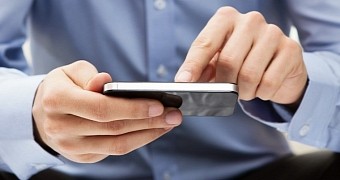In a report in the Journal Computer-Mediated Communication, researchers with the University of Missouri in the US detail how, having carried out a series of experiments with the help volunteers, they found that parting with their iPhone can give people separation anxiety.
Thus, the specialists argue that, when separated from their favorite gadget, iPhone users stand to experience psychological and even physiological trouble severe enough to impair their ability to handle tasks they would otherwise have no trouble performing.
Simply put, take your average guy's or gal's iPhone away from them and chances are that this will dumb them down, be it only for a while. The discovery just goes to show that, in this day and age, people are mind-bogglingly dependent on mobile devices and miss them when they are gone.
What the experiments supporting this study entailed
Writing in the Journal of Computer-Mediated Communication, the University of Missouri researchers explain that, as part of their investigation, they asked a group of iPhone users to complete a series of tests both with the gadget in their possession and separated from it.
Specifically, the volunteers were asked to complete several word search puzzles. At first, they were allowed to keep their iPhone close to them while performing the task at hand. Having completed a puzzle, they were told that they had to give up their gadget for a while.
To convince the volunteers to part with their mobile device, the scientists told them that the purpose of the study was to assess the efficiency of a wireless blood pressure cuff and that their iPhone was interfering with the device they were supposedly helping the researchers test.
Looking to determine how parting with their iPhone affected the volunteers, the specialists kept tabs on their heart rate and blood pressure. The participants in the study were also asked to comment on the levels of anxiety and unpleasantness they experienced while completing the puzzles.
How parting with their iPhone can affect an individual
The University of Missouri researchers say that, when left without their iPhone, the volunteers experienced greater levels of anxiety and unpleasantness when completing the word search puzzle. Besides, their heart rate and blood pressure increased, and they had trouble solving the task at hand.
These physiological and psychological changes occurred because, when separated from their mobile devices, the participants in the study were no longer able to handle them and answer incoming calls or messages while sorting out the puzzles they had been presented with.
“The results from our study suggest that iPhones are capable of becoming an extension of our selves such that when separated, we experience a lessening of ‘self’ and a negative physiological state. Our findings suggest that iPhone separation can negatively impact performance on mental tasks,” study lead author Russell Clayton commented on the outcome of this series of experiments.
In light of these finding, specialist Russell Clayton argues that, as counterproductive as this might sound, perhaps it might not be such a bad idea to allow people to keep and handle their iPhone when attending meetings or completing work assignments.

 14 DAY TRIAL //
14 DAY TRIAL //